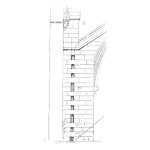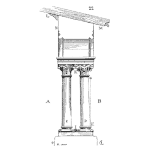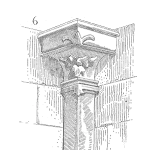
LNG spilled onto water sometime undergoes a rapid phase transition (RPT) or physical explosion creating localized overpressures.
Such physical explosions are also observed when water contacts molten metal or hot lava (steam explosions)
[Read more…]Your Reliability Engineering Professional Development Site
Find all articles across all article series listed in reverse chronological order.
by Sanjeev Saraf Leave a Comment

LNG spilled onto water sometime undergoes a rapid phase transition (RPT) or physical explosion creating localized overpressures.
Such physical explosions are also observed when water contacts molten metal or hot lava (steam explosions)
[Read more…]
Majority voting and consensus decision making are two distinct approaches to making decisions in group environments, each with its own characteristics and implications. Consensus decision-making is an alternative to debate and passage of proposals that can be approved through a majority vote. It does not emphasize the goal of the full agreement but instead focuses on acceptance or “living with it.” Choosing the right method for the context, and more importantly, managing the dissenting view, is important in making good group decisions.
[Read more…]by Greg Hutchins Leave a Comment

This article is the first in our risk management series. The series will be taking a look at the risk management guidelines under the ISO 31000 Standard to help you better understand them and how they relate to your own risk management activities. In doing so we’ll be walking through the core aspects of the Standard and giving you practical guidance on how to implement it.
In this particular article, we’ll be introducing you to the ISO 31000 Standards, the guiding principles, and outlining the risk management framework.
[Read more…]by Mike Sondalini Leave a Comment

Today we look at a couple different ways to visualize the distribution of your data.
Understanding the distribution of your data can be useful for engineers undertaking various tasks. The fact of the matter is that there are many different ways in which one can get an idea of the distribution of the data they’re interested in, one of which is density curves.
[Read more…]
When you are driving on a highway, usually there is a speed limit. If you exceed this limit, a cop can give you a ticket.
In Houston, most highways have a speed limit of 65-70 miles per hour…although most drivers appear to assume it implies “90-mph is okay”.
Let us say the city of Houston were to remove the speed restrictions.
Instead they put forward the mandate “drive safely”.
[Read more…]by Greg Hutchins Leave a Comment

So long as there are products and services offered by an organization, there will be the existence of a sales force.
The basic fundamentals of selling are simple: a customer expresses a desire for something and, in turn, someone sells them a product or service to address that desire. Essentially, sales are how an organization converts a “want” into a “need.” While these fundamentals are timeless, they are rooted in a reactive process.
[Read more…]by Mike Sondalini Leave a Comment

Why is extreme wear occurring on the backing plate behind the impellers of these centrifugal pumps used for irrigation pumping service?
Engineering investigations into the causes of wear, erosion and metal loss on the back-plates behind the impellers of two year old centrifugal pumps pumping water about an irrigation system
[Read more…]by Nancy Regan Leave a Comment

There are two main ingredients for a successful reliability centered maintenance (RCM) analysis:
by Karl Burnett Leave a Comment

By 1792, six Royal Navy dockyards employed about 1500 workers each. The dockyards had a wider variety of technical specialties than was found in any other manufacturing enterprise. The dockyards “were some of the largest manufactories in Europe and dwarfed almost all private industries.” (Morriss) The dockyards built new ships, but maintaining ships was just as important. The Royal Navy’s dockyards constituted one of the largest industrial maintenance organizations in the world…and their only peer organizations in terms of the scale of maintenance management were the dockyards of other superpower navies.
[Read more…]by Sanjeev Saraf Leave a Comment

Generally speaking, 5-6 things have to go wrong for an incident to occur. Furthermore, these events or failures have to occur in a certain sequence.
The characteristics of mega disasters is that 5-6 events with fairly low probabilities of occurrence line up.
[Read more…]
Fist to five voting is a simple and effective way to gather group feedback or to gauge consensus in a meeting or discussion. In this method, participants are asked to rate their level of support for an idea or proposal on a scale of 1 to 5, using their fingers. However, fist to five is a decision-making technique that should be described in the project charter and agreed upon by all participants. Ample time should be allowed between the initial poll and the final vote for negotiation and agreement to occur. [Read more…]
by Greg Hutchins Leave a Comment

Some common reasons why requirements can cause risk to a project are:
This paper explains how poorly defined requirements can impact the project.
by Mike Sondalini Leave a Comment

The duties of the engineering manager role usually include capital project management and maintenance management, two vital aspects that must be done exceedingly well in an industrial operation.
by Larry George Leave a Comment

My wife says I am wasting my time trying to change reliability statistics, so I polled the www.linkedin.com Reliability Leadership…, ASQRRD, IEEE Reliability, “Biostatistics, and No MTBF groups. The polls claimed that “Life data, censored or not, is required to estimate MTBF, reliability function, failure rate function, or survivor function. TRUE? FALSE? or DON’T KNOW.” I am grateful for the responses.
[Read more…]